Forbidden Fruit and a Terrible Storm
“My heart is in anguish within me;
Psalm 55:4 ESV
the terrors of death have fallen upon me.”
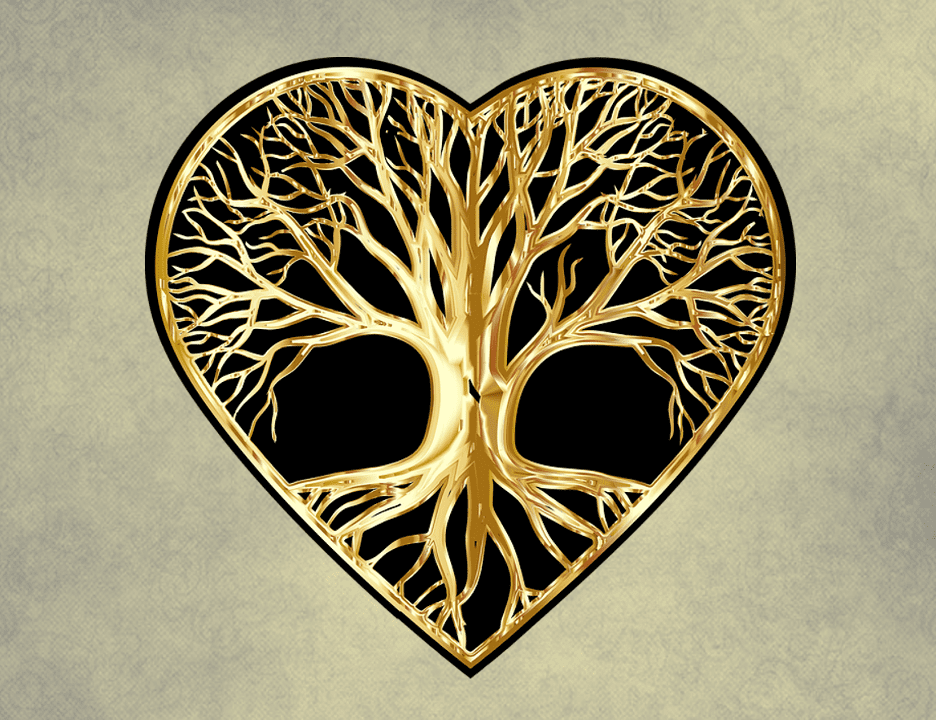
Why is there so much evil in the world? Why do bad things happen to good people? Why do we have to suffer and die? Where is God in all of this? Does He even care? These are questions that have been asked by people throughout the ages, and in this post we will explore some answers.
This week we continue our discussion of the origin stories found in the first part of Genesis. Our plan for 2023 is to journey through The NeverEnding Story of the Bible and discover how we fit into it along the way. Our plan for this year is loosely based on The Story, an abridged chronological version of the Bible, and the accompanying study guide The Heart of the Story by Randy Frazee.
Here is where we are in The Story:
MOVEMENT ONE: The Story of the Garden (Genesis 1-11)
“In the Upper Story, God creates the world of the Lower Story. His vision is to come down and be with us in a beautiful garden. The first two people reject God’s Vision and are escorted from paradise. Their decision to disobey God introduces sin into the human race and keeps us from community with God. At this moment, God gives a promise and launches a plan to get us back. The rest of the Bible is God’s story of how he kept that promise and made it possible for us to enter a loving relationship with him.”
Randy Frazee, The Heart of the Story
Chapter 1 – Creation: The Beginning of Life As We Know It
This chapter in The Story includes Genesis 1-4, 6-9. Last week we looked at the story of creation in Genesis 1. This week we will discuss the story of Adam and Eve in Genesis 2-4 and the story of Noah in Genesis 6-9. In case you’re wondering about the chapters that were left out, here’s what’s in them: Chapter 5 gives the genealogy of Adam to Noah, Chapter 10 gives the family tree of Noah (the Table of Nations), and Chapter 11 contains the story of the Tower of Babel and the genealogy of Noah’s son Shem to Abram.
In these origin stories, we begin to find some answers to our questions . . .
“Every story has a beginning. The Bible begins with God. At the very beginning of this story, God created the universe and put everything in order, forming all of the planets, stars, and galaxies and setting them in motion. On earth, he created abundant varieties of living creatures. And he made the crown of his creation in his own image, his vice-regents: humans. Creation isn’t the only beginning recorded in the Bible, though. There is also the more tragic story of the beginning of sin and death.”
Chronological Life Application Study Bible
The Importance of Freedom: The Story of the Garden
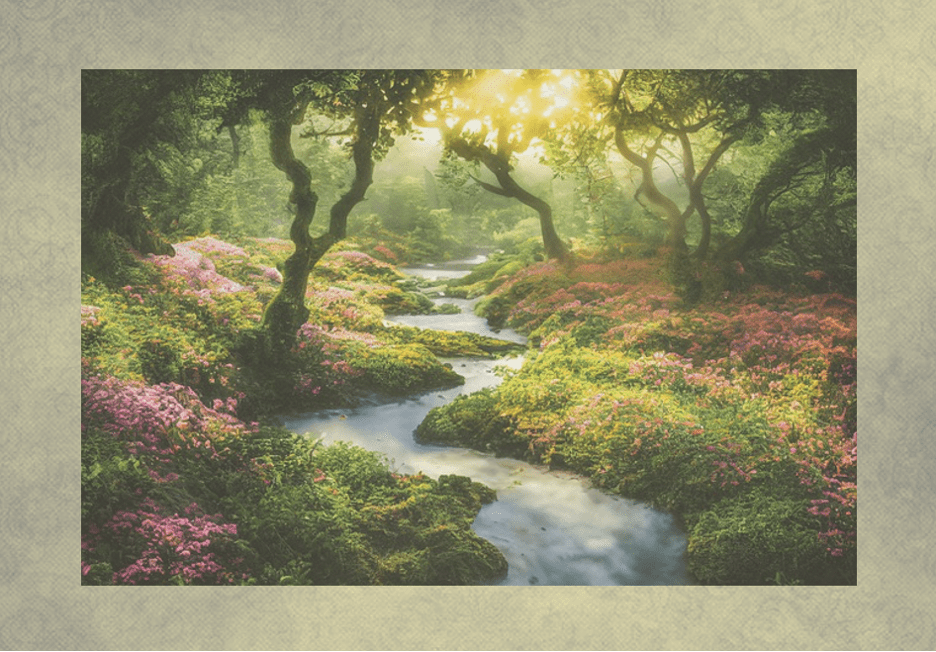
“The Lord God placed the man in the Garden of Eden to tend and watch over it. But the Lord God warned him, ‘You may freely eat the fruit of every tree in the garden— except the tree of the knowledge of good and evil. If you eat its fruit, you are sure to die.'”
Genesis 2:15-17 NLT
When we left Genesis 1, everything was perfect: “God saw all that he had made, and it was very good” (Genesis 1:31 NIV). Then we turn to Genesis 2 and read the story of Adam and Eve in the Garden of Eden. Our focus has gone from all of God’s creation to “a garden in the east” (Genesis 2:8 NIV), where God has chosen two humans with whom to build a relationship.
“Chapter 2 is not a duplicate creation story — still less a creation story that contradicts the one told in chapter 1. Rather, it takes the creation of the cosmos (chapter 1) for granted and narrates how within that cosmos God created the perfect environment for his human creatures.”
Literary Study Bible
Picture the most beautiful garden you can imagine, and that may come close to giving you an idea of what the Garden of Eden was like. It was created as a place where God could be in complete fellowship with mankind, and mankind could live in perfect harmony with the rest of God’s creation. It was paradise. There was just one rule . . .
“Genesis 1 leaves us with the sense that all is right with the world. . . . Imagine, if you can, a world with no pain, sickness, disease, discomfort, hunger, injustice, or death. This was the world God originally intended. The universe operated exactly as God planned. What for us is imagination, for God was original intent. Creation was in perfect alignment with its Creator. Obviously something went horribly wrong.”
Deron Spoo, The Good Book
The one rule God gave Adam was this: Do not eat from the tree of the knowledge of good and evil under penalty of death. Whoa! That seems to come out of nowhere! Why did God plant a tree in the garden with the power to kill anyone who ate from it? That seems a little extreme. And, speaking as a parent, it also seems like God’s just asking for trouble. Why in the world would He do this? If He didn’t want them to eat from that tree, then why did He put it there? Wouldn’t it have been better to just remove the temptation in the first place? Well, God’s thoughts and ways are infinitely higher than ours, so we can’t fully understand everything He does, but I think the reason He did so was this: to give us a choice.
“When God gave Adam and Eve a perfect home in the garden, he also gave them something else: freedom. Rather than force them into a relationship with him, he gave them the freedom to choose whether they wanted to be with him or go it alone. To provide a way for them to accept or reject his divine vision, God set two trees in the middle of the garden. One was the tree of life, which bore fruit that when eaten would sustain life forever. The other was the tree of the knowledge of good and evil.”
Randy Frazee, The Heart of the Story
God didn’t create us to be mindless automatons. He didn’t want robots. He wanted children. He wanted us to choose to love Him, because love that’s not freely given isn’t really love. Before He created us, He existed in perfect fellowship as a triune God — Father, Son, and Holy Spirit — and He wanted to bring us into that fellowship. He created us in His own image (Genesis 1:27) so that we would be capable of that kind of relationship. So He gave us freedom: freedom to choose to obey Him out of our love for Him or to reject Him and His ways. Planting that tree may have been asking for trouble, but it was also necessary. Because without free will, we could never achieve the kind of love relationship He desires with us.
“If you decide that it’s a bad thing to worship God, then choose a god you’d rather serve—and do it today. . . . As for me and my family, we’ll worship God.”
Joshua 24:15 MSG
The Importance of Wonder: The Story of Adam and Eve
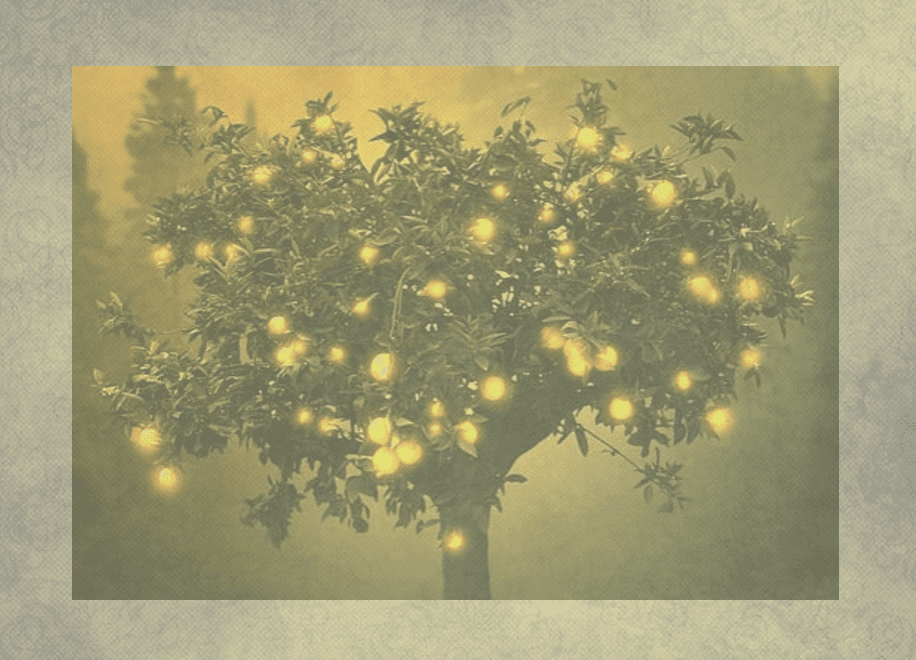
“Then the Lord God formed a man from the dust of the ground and breathed into his nostrils the breath of life, and the man became a living being.“
Genesis 2:7 NIV
God breathed life into Adam, and he became a living being. Our life comes from God’s Spirit. Without Him, we are just dust. This is mysterious and wondrous. But like Adam and Eve, we may be tempted to undervalue this gift. Like them, we may fail to appreciate the wonders all around us, focusing instead on what we don’t have.
“Genesis 3 completes the Bible’s three-part story of origins. Its contribution is to record how sin and suffering entered the world. . . . The theological center of the story is Adam and Eve’s spiritual alienation from God through sin, but at the human level the story is also a psychological portrayal of the dynamics of guilt. This historical narrative tells us both what happened on that fateful day and how sin happens in our own lives.”
Literary Study Bible
Eve fell victim to one of Satan’s tricks: enticing us to second-guess God. “Did God really say, ‘You must not eat from any tree in the garden’?” (Genesis 3:1 NIV) Yes, He did. Eve herself confirmed that she understood the rule. But, after some consideration, she gave in. She ate the fruit. Then she enticed Adam to do the same.
“Genesis 3 is an account of a catastrophe. This chapter gives us the framework to understand the perpetual pain of our planet. If you’ve ever sensed that something is not quite right with the world, Genesis 3 confirms your hunch. The Bible gives us a front-row seat as evil enters the human experience.”
Deron Spoo, The Good Book
It’s easy for us to judge them for what they did. But haven’t we all done the same? I know I have. It all starts with a tiny little thought: Did God really say . . . ? Maybe, like Adam and Eve, we know the answer. But then, like them, after some more consideration or persuasion, we give in. We end up disobeying God. Just like they did.
And there it is. Why is there so much evil in the world? Why do bad things happen to good people? Why do we have to suffer and die? Because of sin. And as members of the human race, we brought this upon ourselves.
“Sin has shattered the perfect alignment of creation . . . . And not to be overlooked, the most devastating result of sin was the introduction of death into God’s created order . . . . Anyone who has dealt with the death of a loved one will tell you that the event feels unnatural. That’s because it is! God created us to experience unlimited life. Instead, we’ve settled for disobedience and its irreversible consequence, death.
Yet even amid the devastation and depression of Genesis 3, there is hope. God walked through the garden in search of the humans in hiding. . . . God hasn’t left us alone in our brokenness. He continues to search for hiding humans even today.”
Deron Spoo, The Good Book
So, what are the lessons here? There are many, I’m sure. But the one I want to focus on is the importance of wonder. Adam and Eve were surrounded by the beauty and majesty of God’s creation. They lived in perfect comfort and in complete fellowship with their Creator. And yet, they gave in to Satan’s temptation to desire the one thing they could not have. And it cost them everything.
“At some point Adam and Eve must have taken God for granted. Otherwise they would not have believed the ‘foolish ideas’ presented to them by the serpent. Our worship and gratitude for the God of wonders greatly influences our thinking.”
Faith Blatchford, God of Wonders
This world is temporarily broken because of sin, but God’s beauty still shines through. We have the wonders of His creation all around us. We have His mysterious life-giving breath inside of us. And we have His unfathomable love, a love that has made a way for us to return to that garden paradise to be with Him forever. So let’s never take our God of wonders for granted. Let’s worship Him in awe and gratitude for all He has done for us. Then, when crafty words try to entice us away from Him, we won’t be tempted to listen.
God hasn’t given up on us. Notice that Genesis 3 comes at the very beginning of God’s story. The rest of the Bible tells of God’s plan to get us back into perfect fellowship with Him. And what a wonderful story it is!
“There’s the wonder of sunset at evening,
“The Wonder of It All” by George Beverly Shea
The wonder as sunrise I see;
But the wonder of wonders that thrills my soul
Is the wonder that God loves me.”
The Importance of Faith: The Story of Noah
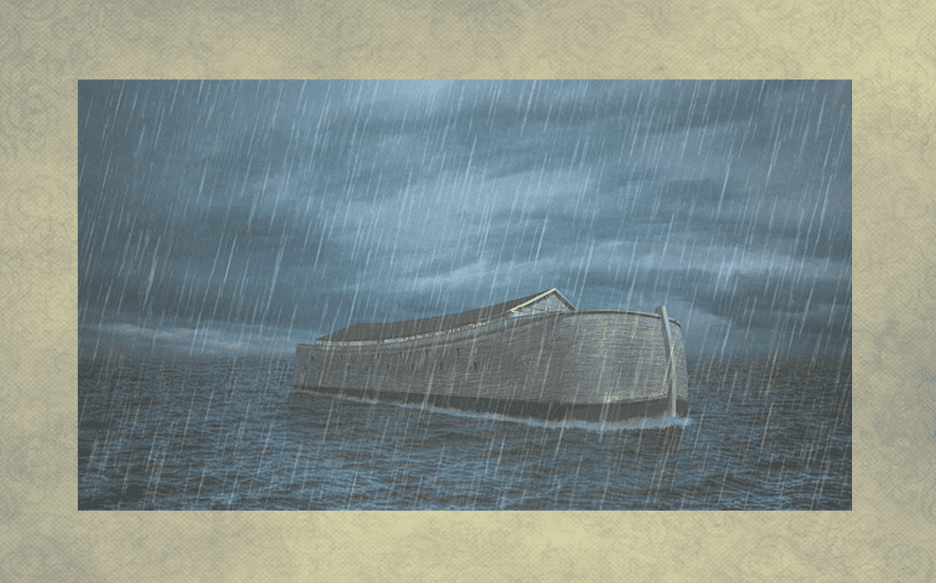
“Noah did everything just as God commanded him.”
Genesis 6:22 NIV
As we move into the story of Noah in Genesis 6-9, the world has become a pretty bad place. So bad, in fact, that God decides to wipe out all humanity except for Noah and his family. “The Lord saw how great the wickedness of the human race had become on the earth, and that every inclination of the thoughts of the human heart was only evil all the time. . . . But Noah found favor in the eyes of the Lord. . . . Noah was a righteous man, blameless among the people of his time, and he walked faithfully with God” (Genesis 6:5, 8-9 NIV).
“The tragic accounts of the mistakes and poor choices of Adam and Eve, and their firstborn son Cain, are echoed in the later stories of hardship and tragedy for their children and their children’s children. As people began to populate the globe, . . . humanity’s legacy of hate, anger, murder and deception play out as people continue to neglect their relationship with God. Eventually, nearly everyone just plain forgets their Creator and the whole point of being alive. For most people, life becomes one big party with no thought of consequences . . . except for one man.”
The Story
God has not given up on humanity, but that doesn’t mean sin has no consequences. This story makes that painfully clear. God chose to save Noah and his family and start again, but at great cost. The earth and everything in it would be destroyed.
In this story we find the answers to a couple more of our questions about the evil in the world: Where is God in all of this? Does He even care? Yes, He does. God cares about sin. He warned Adam and Eve from the beginning that the consequence of sin was death, and here we see the repercussions of their sin played out on a global scale. I wonder if Adam and Eve thought they were off the hook when they didn’t immediately drop dead after taking a bite of the forbidden fruit. But if they didn’t fully understand the tragedy of their mistake, God did. And it broke His heart.
God cares about sin. And He cares about us. So He set His plan in motion to redeem our mistakes, a plan that begins with Noah. But just because Noah was chosen to be saved didn’t mean it would be easy on him. He was given instructions for what sounded like an impossible task — build an ark for you and your family and fill it with two of every kind of animal — in order to prepare for what sounded like an impossible scenario. Impossible. Overwhelming. Insane. But he did it. “Noah did everything just as God commanded him” (Genesis 6:22 NIV).
“Genesis 6 gives us a glimpse of trust. In the details of constructing the ark, notice the one part left out that is standard for outfitting boats: the rudder. The ark was designed to drift, not for Noah to navigate. Noah and his family put themselves fully into the hands of God. And perhaps this is the grand lesson we can take from Noah’s great challenge. We may not always be able to fix the problems that present themselves to us, but it is always wise to surrender ourselves to the care of God.”
Deron Spoo, The Good Book
Noah trusted God. He trusted God with his life and with the lives of his family. He did everything God told him to do, even though it must have seemed crazy. I wonder what any of us would have done in Noah’s place. I’d like to think I would obey just as readily as he did. But I’m not so sure. Is my faith that strong? Maybe none of us will be called to undertake something as monumental as the task Noah was given — or maybe we will — but as followers of Christ, we can be sure that we will be called to step out in faith for God at some point in our lives. What will our response be? Will we obey?
“Noah trusted God because he had faith in Him. The more important fact is that God trusted Noah because Noah’s thoughts were not evil like everyone else’s. Noah’s thinking empowered him to be righteous . . . . This story is a reminder to us of how our belief about God impacts our actions.”
Faith Blatchford, God of Wonders
If we want to follow Noah’s example in obedience, it begins with following Noah’s example in faithfulness. Noah obeyed God because he had faith in God. He believed what God told him. He trusted God to guide him, to provide for him, and to save him. And he didn’t just drift into this life of righteousness. Think about the world he was living in. The rest of the human race had become wicked and evil. Except for his family, Noah was alone in his beliefs. He had to choose every day to be faithful to God. He had to choose every day to trust Him and to obey Him. I’m sure that wasn’t always easy. But easy or not, Noah did it. Noah did everything just as God commanded him. And that choice was the difference between life and death.
“Are you experiencing a storm right now? Do you wonder if you will survive? It may be tempting to give in to panic. Before you do, take a minute to be still and allow God to calm your mind, your emotions and your body. Remember Noah.
Faith Blatchford, God of Wonders
God was faithful to him . . . . He will certainly be faithful to you . . . .”
The Importance of Scripture: The Story of Us

“For everything that was written in the past was written to teach us, so that through the endurance taught in the Scriptures and the encouragement they provide we might have hope.”
Romans 15:4 NIV
As we reflect on the origin stories found in Genesis 1-11, there are some lessons we can keep with us: the importance of freedom, the importance of wonder, and the importance of faith, to name a few. But the fact that these stories even exist can teach us a lesson as well: the importance of Scripture. It’s no accident that we have these stories to read today. The power of God is infused in every word, and His power has made sure that they have survived. So as we read the stories in the Bible, let’s always keep in mind what God wants us to learn from them. Scripture is filled with stories of people just like us. Everything recorded there was written to teach us and to give us hope.
“God’s sovereignty is on display here. Nothing can thwart his will. Nothing can keep Him from His plan to rescue the people He entered into relationship with. . . . God is even sovereign over weather and creation. He’s at work in all things to restore fallen humanity in relationship with Himself.”
Tara-Leigh Cobble, The Bible Recap
And the next step after learning what God wants to teach us is to put it into action. Perhaps you are like me: I’m really good at collecting insights and making notes about what I need to do, but I’m not so great with the execution. Scripture makes it clear that this is not good enough. We are instructed not merely to listen to the Word, but to do what it says (James 1:22). So that’s our challenge. As we read and study the stories in the Bible, let’s always do so with the intent of letting them transform us more and more into the image of Christ. Because that’s the whole point!
“Imagine reading a familiar passage of Scripture and gaining fresh insight, as if it were the first time you had ever read it. How much richer would your life be if you left each Bible reading with a new perspective and a small change for the better? A small change every day adds up to a changed life — and that is the very purpose of Scripture.”
Chronological Life Application Bible
This week’s Scripture passages remind us of some of the lessons we can learn from the story of Adam and Eve and from the story of Noah. As you read these stories, let the Holy Spirit guide you to the truths He wants you to gain from them, and then put those insights into action. Choose to be filled with wonder. Choose to have faith. Choose every day to be righteous, even when it’s difficult. Because the cure for a heart full of anguish is the unshakable hope we find in our Lord!
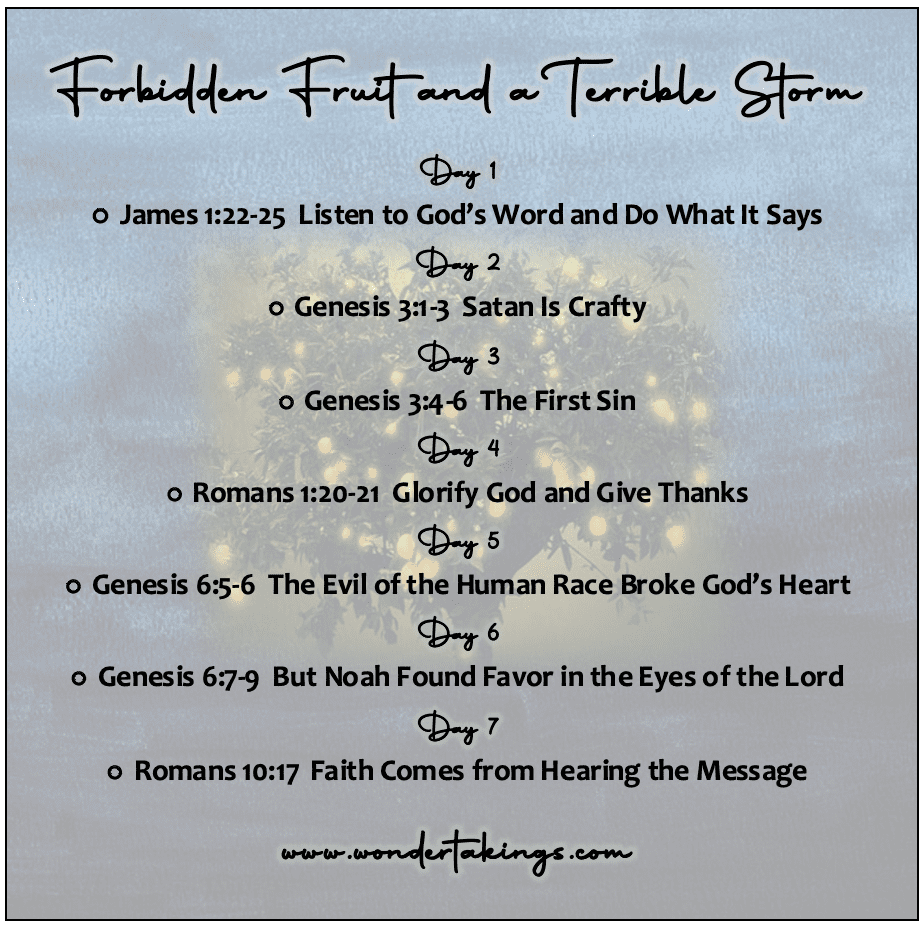
“Cast your cares on the Lord and he will sustain you;
Psalm 55:22 NIV
he will never let the righteous be shaken.”

References:
- Blatchford, Faith. God of Wonders: 40 Days of Awe in the Presence of God. Chosen, 2021.
- Chronological Life Application Study Bible, New Living Translation. Tyndale House Publishers, Inc. 2012.
- Cobble, Tara-Leigh. The Bible Recap: A One-Year Guide to Reading and Understanding the Entire Bible. Bethany House, 2020.
- Frazee, Randy. The Heart of the Story: Discover Your Life Within the Grand Epic of God’s Story. Zondervan, 2017.
- Literary Study Bible, English Standard Version. Crossway, 2019.
- Spoo, Deron. The Good Book: 40 Chapters That Reveal the Bible’s Biggest Ideas. David C Cook, 2017.
- The Story: Read the Bible as One Seamless Story from Beginning to End. Rev. ed., Zondervan, 2008.
Images:
- Vintage Paper Background image by Dorothe from Pixabay (edited)
- Heart image by Gordon Johnson from Pixabay
- Garden image by Alan Frijns from Pixabay
- Fruit Tree image by Smim Bipi from Pixabay (edited)
- Noah’s Ark image by Jeff Jacobs from Pixabay (edited)
- Bible image by Maicon Fonseca Zanco from Pixabay
- Heart Cloud image by Michaela from Pixabay